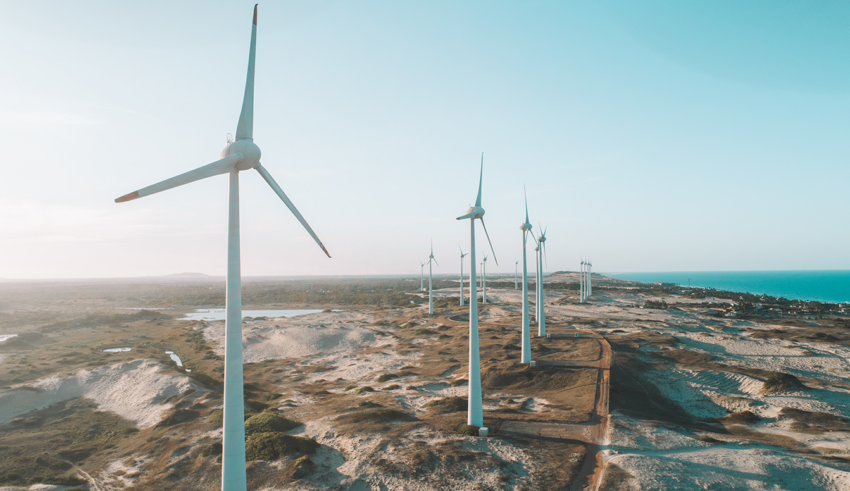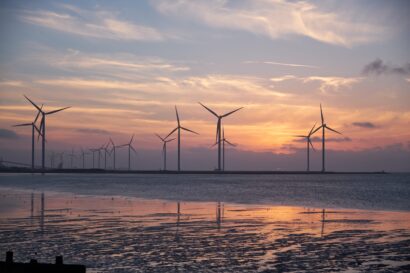AG INSIGHT | 11/10/2018
Recognition of achievements to date can inspire next steps in decarbonisation

Ahead of Green GB Week, Matthew Wright, Managing Director at Ørsted UK, reviews the UK power sector’s journey to decarbonisation, highlighting the importance of consistent government policy in allowing the renewables sector to grow.
The call for a faster rate of decarbonisation in the IPCC report makes sober reading. However, before we take a deep breath and continue on our journey of decarbonisation we should all take a moment to reflect on how far we have come, and the successes we have achieved to date.
The UK’s substantial decarbonisation over the past ten years following the establishment of the Climate Change Act in 2008 has demonstrated that it is possible to grow the economy whilst reducing emissions. You only need to look at the success of industries like offshore wind to see that the benefits are even bigger than just a reduction in carbon emissions.
Ahead of next week’s inaugural Green GB Week, it is worth recognising the progress the UK has made in the past ten years, how we were able to achieve so much, and what is needed to accelerate this growth in the next ten years.
Ørsted’s ambition to tackle climate change
At Ørsted, we believe that it’s time to take real action on climate change. Our vision is to create a world that runs entirely on green energy. A decade ago, we initiated our transformation, culminating in our decision last year to divest our oil and gas business and dedicate ourselves to only developing green and sustainable energy.
And it’s no coincidence that our largest investments have been in the UK – we have already invested £8 billion in our UK offshore wind farms and we expect to invest a further £4 billion by 2020. As a sector, offshore wind has been nurtured in the UK, benefitting from strong policy support from this and previous governments which, in turn, has made the UK an attractive place to invest. As a result, the UK is now home to an efficient and innovative supply chain and to high quality universities and research centres.
The UK’s rapid decarbonisation of the power sector – how it was achieved
This British success story has been achieved by Government, industry, and academia working together. In 2012, the Government made it clear that for offshore wind to cement its position as a competitive low carbon energy resource, costs needed to fall. Industry rose to this challenge. Mechanisms such as Contracts for Difference have provided the stable framework for renewable energy investors, developers and supply chain partners alike to pull together to build a globally competitive industry.
Against this stable policy framework, the speed at which the industry has been able to reduce the cost of offshore wind generation is phenomenal. Last year, Ørsted won a government contract to build the world’s largest offshore wind farm, Hornsea Project Two, at a price 50 per cent lower than the previous auction just two years earlier. For the first time in history, it has become cheaper to build and operate offshore wind farms than new coal and gas-fired power stations.
Economic benefits to the UK
A steadily increasing market for offshore wind in the UK, together with a predictable pipeline of projects, has enabled the offshore wind sector to invest in new technologies such as larger turbines and new state-of-the-art facilities, helping to develop a world class supply chain in the UK. At Ørsted, we have, for example been able to use our pipeline of projects to support the creation of UK factories building blades, towers and transition pieces for offshore wind turbines.
The UK is home to world-leading innovation centres, which are not only helping to drive down cost, but are boosting local growth and creating highly-skilled jobs. Initiatives such as the ORE Catapult and Offshore Wind Accelerator, funded by government and industry in collaboration with academia, have enabled innovation and savings at every stage of the wind farm development process, from design, to construction and operation and maintenance.
This is having a hugely positive economic impact across the UK – creating thousands of jobs, helping to grow local businesses and regenerating coastal communities. Increasingly, our supply chain expertise presents a global export opportunity too. For example, we are exporting blades from MHI Vestas’ Isle of Wight factory to our Borkum Riffgrund 2 project in Germany. We are also working with Norfolk-based unexploded ordnance (UXO) specialist Ordtek on our offshore wind farm projects in the United States and Taiwan.
Lessons for the next 10 years and beyond
Green energy is now the economic choice in many countries and we see the demand for renewable technologies rising across the world, with investors recognising the immense potential of renewable energy as an alternative to fossil fuels. The UK is leading the way in offshore wind and has a huge amount of potential to leverage this leading position as the technology goes global.
At the same time, while good progress has been made, we know there is a lot more can be done to decarbonise the grid and create more sustainable energy supplies. The IPCC’s special report on a 1.5°C future based on scientific evidence highlights the need for greater and faster action across all sectors to combat climate change. At Ørsted, we are pioneering new technologies such as energy storage, smart energy solutions and energy from waste, other companies are investing and developing many other exciting technologies.
As we continue our decarbonisation journey, it is important to look back and consider what enabled us to achieve the successes to date: a clear policy framework. These policies, and the achievements of the industry, are enabling the UK to rapidly decarbonise its power sector. As the UK now begins to tackle the heat and transport sectors, it is vital that we recognise we will only achieve our goal if we understand the importance of Government, industry and academia continuing to work together.
Matthew Wright, Managing Director, Ørsted UK
This blog is part of the Aldersgate Group’s series ahead of Green GB Week. This week will highlight the opportunities of clean growth and the role of business and the public in tackling climate change. RSVP here to our Green GB Week event ‘Great Britain’s Clean Growth Story: celebrating business success and tackling the challenges ahead.’



